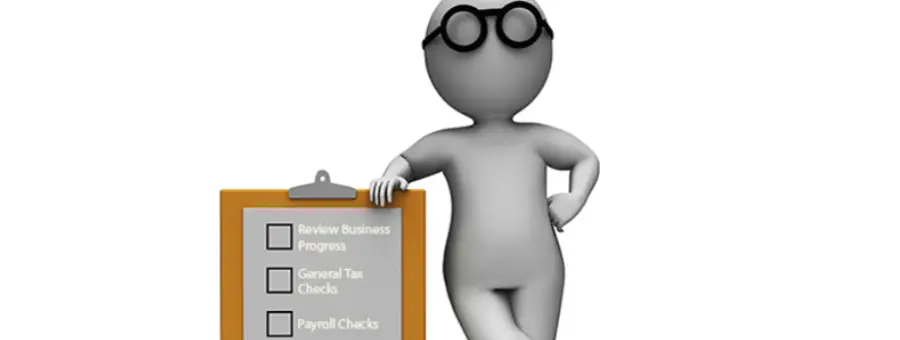
How To Recruit The Right People
Category: Organisational Success, People and Performance
Is there anything sillier or less effective in business than to recruit people via an advertisement, two selection interviews, three referee checks and maybe a psych test/profile … with not much more than a few hours of direct conversation with the appointee? How could anyone be confident that the choice is well made when so much of the situation is an act, sometimes rehearsed or trained, the CV’s are manipulated to impress, the referees are chosen by the applicant and the interviews are sometimes/often conducted by internal people who are untrained in the art of interviewing. Why can’t businesses see the futility of using such an approach for what is surely one of the most important decisions they make .. the choice of the next person who will impact the culture and performance of the business.
If an advertising approach is to be used to recruit for a position then handle it effectively, as outlined below.
- Don’t ask for CV’s nor cover letters. CV’s are often written or edited by someone other than the applicant, and cover letters too often just pluck information from the CV that may apply to the advertisement. Create and use a template of key questions that will initially discern between suitable and unsuitable potential candidates according to the answers given, with little room for manoeuvre in the way the questions are framed. This template should establish whether or not the candidate passes the minimum competence (skill and knowledge) requirements but also point to whether they have some of the required personal attribute requirements as well. Then only move forward into initial interviews with those who pass this step. The template of questions will vary from position to position and from business to business, so it must be constructed skillfully.
- Sell the business and the role effectively in the first interview. This is important so that quality candidates will want to effectively engage the selection process. This is a lot more than just describing the business and the role. It’s about clearly communicating three things: 1) The fundamental purpose(s) of the business and therefore creating significant connections with the right candidates. 2) The quality of people already in the business and being sought. 3) The behavioural patterns in existence and being grown (i.e. culture). It’s obviously important for candidates to leave the first interview with a strong desire to move further through the remainder of selection process enthusiastically.
- Conduct the first interview to test competence, character and chemistry. The interviewers have to understand the difference between these three aspects. Competence is the ability to do the job (skill and knowledge), so qualifications and demonstrated work experience have to be drawn out from the questions asked. Character represents the values the candidate actually lives by, so questions should invite candidates to speak openly about this, without being personally intrusive. Chemistry is the willingness and ability of candidates to work well within a team, so questions should draw out how they have done this in their past. Even if a candidate satisfies the minimum competence level, they should be rejected at this point if they don’t pass both the character and chemistry ‘tests’.
- Put an exercise in place for candidates selected to return for second interviews that will actually test them for the specific role at hand; an exercise that ties actions into business objectives and that cannot be generically handled. Invite candidates to be in touch with one or two selected people within the business, maintaining confidentiality of business information of course. Let them know that will then present what they create at the start of the second interview, two weeks later. The design of the exercise has to be skillfully constructed to be an effective test.
- Conduct the second interview to receive the exercise as completed by each candidate at the start, and to further test character and chemistry. This interview should involve some questions that will test the candidate by making them think rather than being able to come up with quick answers. The second interview should involve at least one person who has not met the candidate to date, for objectivity of assessment.
- For candidates who make it past the second interview, offer to go to their homes including meeting with any family or personal partners who may be happy to do so. This cannot be forced, of course; it’s an offer. This can be a very important step in the process,. There can be a lot to be learnt from doing this, remembering it is an offer not a requirement and must be handled respectfully not intrusively. (And before rejecting this as unnecessary, elite sporting teams have been doing this for years. Is selection of sports people more important than selection of people into a business? Ask the business owner!).
- Put some minor tests into the selection process along the way. For example, get candidates to send something back, make a phone call or send an email… at or by specific times. If they don’t fulfil these little tasks, alarm bells should be ringing (unless there are valid and declared reasons on the initiative of the candidate).
- For whomever has made it to this point:
- Conduct in-depth referee interviews, one professional, one personal and one from left field. Try to reject the first three referees put up by the candidate and ask for the next three, to minimize the chance of biased support for the candidate and to maximize the chance of objective feedback on them.
- Have each of them spend 2 or 3 hours in the business, separately, meeting with the people they would work with and viewing (even sampling) the work they will be part of.
- For whomever is in the mix at this point, and it may only be one or two, conduct a final interview that each candidate runs, with them putting their case and asking the questions.
- Make your decision, having taken upto 6 weeks to this point.
If this process appears onerous, consider the impact the wrong choice of candidate has on the business, how difficult it is to undo, the impact on other people and the extra cost of going through it all again after the first poorly chosen candidate has gone. Selection of staff, irrespective of the business’s size and the role, is crucial to business success. It’s time to ditch the ridiculous process businesses have been using in favour of this type of approach.
Previous Newsletter Articles
Business Tips
HR Information
Contact Us
1300 022 270
enquiries@myabbs.com.au






